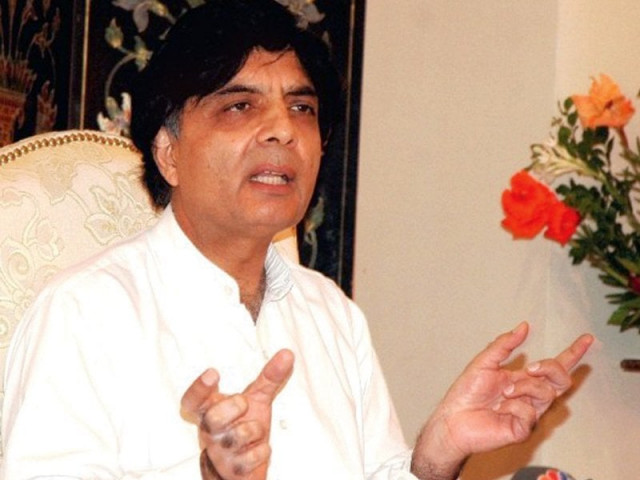Police reforms: Govt to appoint permanent IG after police restructuring
Sharifs to make decision on DMG-PSP tussle over administrative control of police.

Sharifs to make decision on DMG-PSP tussle over administrative control of police. PHOTO: FILE
The Punjab government has postponed the appointment of a permanent inspector general (IG) of Punjab Police as it first seeks to finalise legislation to reform the force and decide the tricky issue of who will control it.
The PML-N is planning wide-ranging police reforms in the Punjab and is working on legislation to replace the Police Order of 2002, introduced by former dictator Gen (retired) Pervez Musharraf. Acting Punjab IG Khan Baig has been asked to continue in the office until consultations on the restructuring of the force are completed.
At a meeting on the subject last Saturday, the PML-N leadership approved an idea to model the Punjab Police on the Turkish police force.
The next meeting is to tackle the issue of administrative control of the remodelled force.
Sources in the PML-N told The Express Tribune that the leadership is leaning towards putting the police back under the control of the Pakistan Administrative Services (PAS) – the civil service elite formerly known as the District Management Group (DMG) – despite objections from the Police Service of Pakistan (PSP) – the civil service branch from which the police draw their senior officers.

PAS officials have advised the Sharif brothers to place the police back under their administrative control as they would be able to place a check on it to prevent excesses.
They have also advised the chief minister not to appoint a permanent IG at least until the new law is ready to be passed, as a permanent officer might try to resist reform. The acting IG would not be in a position to offer much resistance.
The Police Order of 2002 removed the police from the control of the DMG and made it autonomous.
However, the government failed to come up with rules under which the ordinance (and the later amended Police Order of 2004) was to be exercised – like the Criminal Procedure Code to the Pakistan Penal Code – and the police were told to follow the Police Rules of 1934, which were drawn up in conjunction with the Police Act of 1861.
PSP officials have argued that the failure of the Police Order of 2002 was not a result of the autonomy of the police, but because the government failed to properly adopt it, resulting in widespread misunderstanding about the law among police officials as well as the public.
They have argued that the police must be protected from bureaucratic interference and be answerable to the home minister or the chief minister, but not the home secretary.
After 2008, the governments of Khyber Pakhtunkhwa, Sindh and Balochistan revived the Police Act of 1861 and put the police back under the administrative control of the Home Departments (which is headed by PAS/DMG officers). The home secretaries, PAS officials of grade 20, would be directing the transfers of police officers through orders to PSP officers of grades 21 or 22. Meanwhile in the Punjab, the police continued to follow the Police Order and the IG was in charge of transfers.
Published in The Express Tribune, June 28th, 2013.



















COMMENTS
Comments are moderated and generally will be posted if they are on-topic and not abusive.
For more information, please see our Comments FAQ